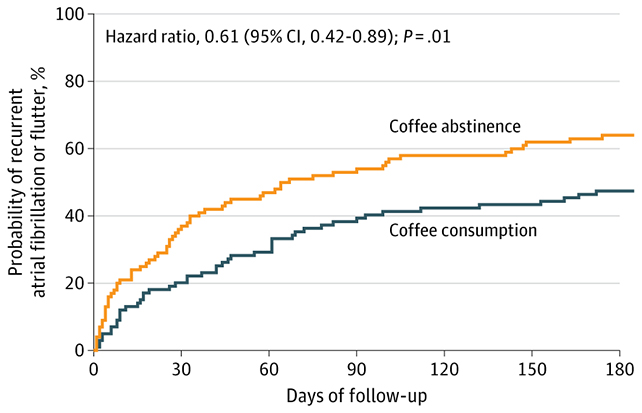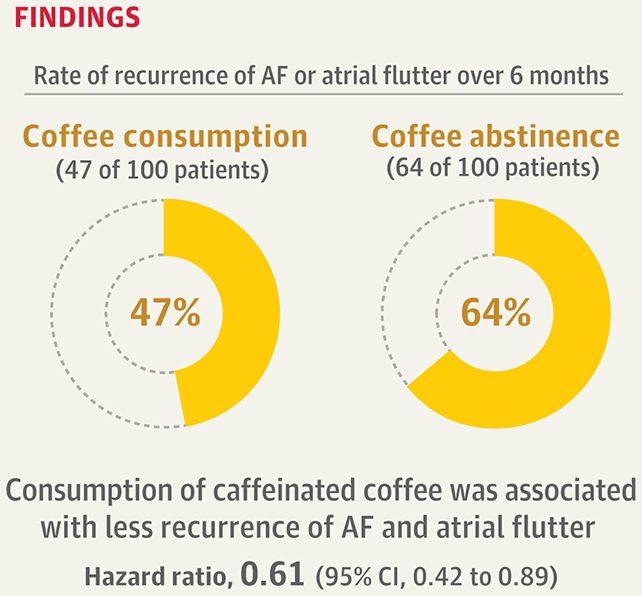Coffee is associated with increased alertness and faster heart rates, so people with atrial fibrillation – the most common irregular heartbeat condition – are often told to avoid it. A new study suggests that advice may need a rethink.
Researchers followed 200 people in the US, Canada, and Australia who were about to undergo electrical cardioversion for atrial fibrillation (AF). All were current or former coffee drinkers. Half agreed to avoid coffee for six months; the other half agreed to drink at least one cup per day.
Across the six months, the researchers tracked AF recurrences lasting more than 30 seconds. In the coffee-drinker group, 47 percent had an episode of AF, compared with 64 percent of abstainers. That equates to a 39 percent lower risk for coffee drinkers.
Related: Caffeine Pouches Can Pack 2 Coffees in 1 Hit. Here's Why They're a Risk.
"The results were astounding," says cardiologist Christopher Wong, from the University of Adelaide in Australia.
"In contrast to conventional wisdom, we found the coffee drinkers experienced a significant reduction in AF compared to those who avoided coffee and caffeine."

Previous research has been inconclusive on whether caffeine does or doesn't trigger AF episodes, but this is the first randomized clinical trial to look at the association.
The researchers now want to look at the effects on those who weren't coffee drinkers to begin with, and how other caffeine drinks might have an impact.
A number of explanations for these latest findings are possible. We know that coffee can boost exercise performance, which could protect against AF episodes (the study didn't collect detailed diet/exercise data).

Coffee also acts as a diuretic (making us pee more), as well as containing anti-inflammatory compounds. These characteristics can also help reduce high blood pressure, a risk factor for AF.
It may simply be the case that drinking coffee means people aren't sipping on unhealthy beverages instead, according to the researchers, although these possibilities weren't directly explored.
AF affects tens of millions of people worldwide. It can lead to strokes and heart failure, and is linked to risk factors including obesity, diabetes, and excessive alcohol consumption.
"The number of people with AF is rising and the risk of developing the condition increases with age," says cardiologist and electrophysiologist Gregory Marcus, from the University of California, San Francisco.
"As a result, there's certainly a lot of interest in ways to reduce the burden of the condition."
While it doesn't show direct cause and effect, the study adds some valuable clarity to the links between coffee and heart conditions.

"It is reasonable for health care professionals to let their AF patients consider experimenting with naturally caffeinated substances that they may enjoy, such as caffeinated tea and coffee," says Marcus.
"However, some people may still find that caffeine or caffeinated coffee triggers or worsens their AF."
The research has been published in JAMA.

